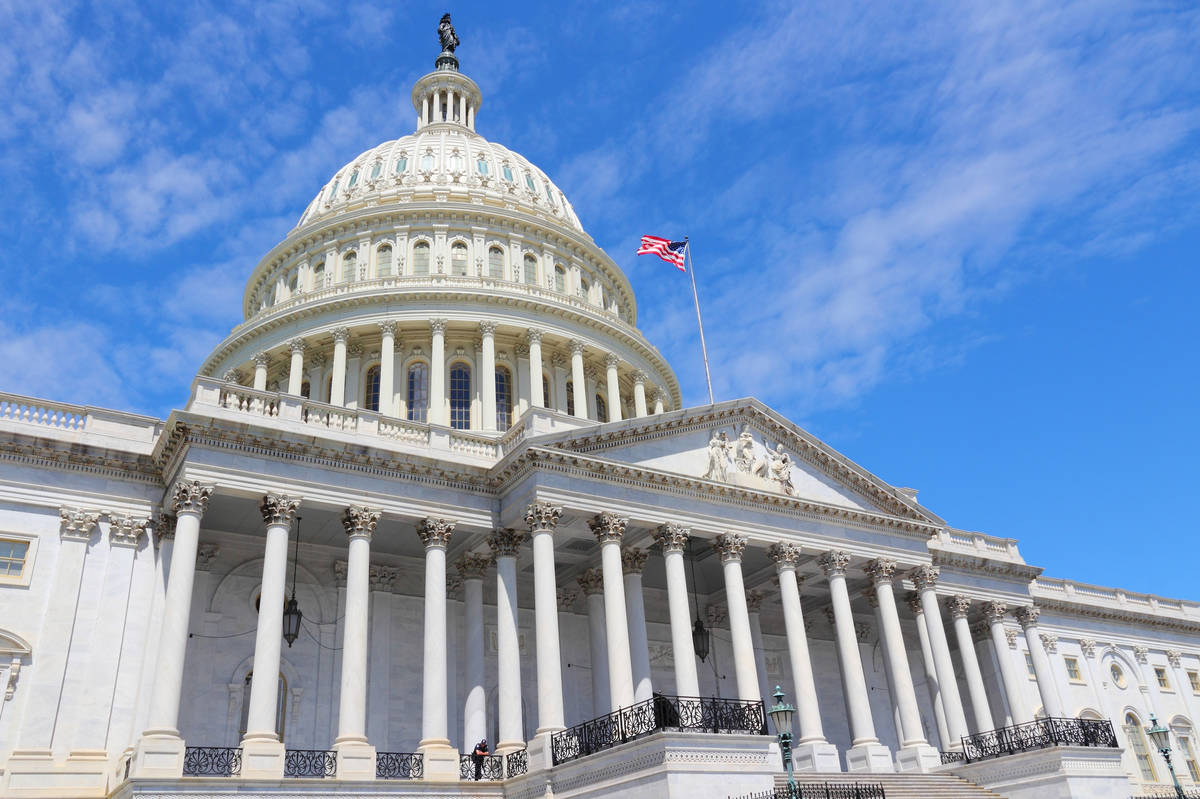Campaigning in the age of the coronavirus
Allen Rheinhart feels cheated by the state of Nevada.
The progressive Democrat is mounting a long-shot primary election challenge against Rep. Dina Titus in the 1st Congressional District — a shot he said was made even longer by the state’s move to an all-mail primary.
“They are pre-empting the timeline I have to get my message out,” Rheinhart said. “Voters may get their ballot in early May, fill it out, then change their mind by June.”
Rheinhart, who came down with COVID-19 in mid-March, is running a mostly online campaign with very little financial backing.
Candidates throughout the state have had to make sweeping strategy adjustments amid the coronavirus pandemic. Gov. Steve Sisolak’s stay-at-home order has virtually wiped out door knocking, rallies and public appearances, and widespread economic uncertainties have affected fundraising.
But the abrupt shift to an all-mail primary in a state where most voters traditionally prefer to vote in person has been yet another wrinkle in an already unprecedented campaign cycle. The window to get a candidate’s message out has been moved up by more than a month, and turnout remains a serious question.
“It’s challenging because we are all operating with a new playbook,” said Michael Cullen, campaign manager for Patricia Ackerman, a Democrat running for Rep. Mark Amodei’s 2nd Congressional District seat.
“Normally, you know you’re going to do digital at this time and direct mail at this time, and you know how much you should give to each, and the creativity is just in your messaging,” he said. “From a campaign operative perspective, it’s now about how we can outmaneuver other candidates with the same challenges in front of them. We have to be creative in both the messaging and how we get it out.”
Cullen said his staff was planning for an early voting period from May 24-June 5 with a June 9 primary, but it had to accelerate the timeline for getting out the vote and sharing Ackerman’s leadership qualities with Northern Nevada Democrats in anticipation of ballots arriving this weekend.
Coronavirus changes
The Nevada secretary of state’s office, along with all 14 county election officials, made the move to an all-mail primary to protect workers and the public from the spread of the coronavirus. Voters are expected to receive their ballots between Monday and May 14.
Deputy Secretary of State Wayne Thorley confirmed that voters may not make any changes to their ballot or submit a new one once they’ve placed one in the mail, similar to the early voting periods in recent elections.
Cullen said the general consensus among campaigns is that some voters will fill out their ballots immediately, and some will wait until the last minute, with a lull of several weeks in between.
The campaigns have been watching all-mail primaries in other states. But Nevada is unique, so it’s unclear just how turnout will unfold.
This past week, less than a quarter of registered voters participated in an all-mail Ohio primary that included the presidential race. The turnout was less than half the 2016 level.
However, Kansas Democrats tripled their 2016 turnout in a presidential primary that wrapped up Saturday.
In-person preferred
Nevada voters choose their favored presidential nominee in a series of party-run caucuses. Primary elections in this state do not have the draw of a presidential contest at the top of the ballot, which may further affect turnout.
Dan Lee, an assistant professor of political science at UNLV, agreed that turnout remains a mystery.
“You would expect higher turnout due to the convenience, but not all things are equal,” he said. “People are preoccupied with other things right now.”
Lee expects turnout to lag in the first weeks of early voting as people set aside their ballots to deal with more pressing matters such as filing for unemployment benefits or finding a new job.
The campaigns also have a part to play, he said. “We know that campaigning has a massive effect on turnout, so it depends on how well campaigns are able to reach voters and mobilize them.”
Lee does not necessarily agree with Rheinhart’s assertion that the switch to an all-mail primary will hurt all grassroots candidates.
“Before, if you had the resources, you could have an advertising or canvassing blitz the day or the week before the election and win,” he said. “But now, election day doesn’t mean anything. It’s spread out over more than a month.”
Changing strategies
Even candidates with significant resources must weigh whether to spread their advertising over a whole month or continue with the blitz strategy.
Evidence of this accelerated window can be found in Nevada’s 3rd Congressional District, where the two best-funded Republican candidates, Dan Rodimer and Dan Schwartz, have already hit each other with scathing attack ads. In a normal cycle, these may have been saved for the first week of June.
Limits on cheap, established ways of getting a candidate’s name out there, such as holding rallies or going door to door, would seem to put all challengers at a disadvantage this cycle, Lee said.
Incumbents are inherently better known, and Nevada’s four House members — Titus, Amodei and Reps. Susie Lee and Steven Horsford — all have a sizable fundraising advantage over their challengers for buying television advertisements if needed.
“Online campaigning could be the equalizer,” Lee said. “It depends on how well people can adapt to digital campaigning — using social media or a heavy texting presence.
“Challengers are at a disadvantage, but it’s not insurmountable,” he added.
Contact Rory Appleton at rappleton@reviewjournal.com or 702-383-0276. Follow @RoryDoesPhonics on Twitter.











































